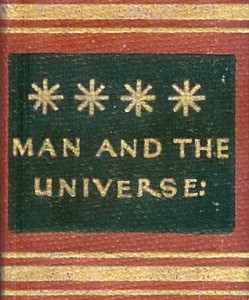My relationship with spirituality has run the full gamut—and I’m only 31. And I imagine it will have another run before I’m 61.
My dad was a lapsed-Catholic, my mom was a Buddhist-turned-Christian and I was born and raised in the Bible Belt—I didn’t have a chance.
I’ve been to more churches than you can shake a stick (cross?) at: Presbyterian, Southern Baptist, Baptist (apparently there’s a difference?), Episcopalian and Nazarene. I’ve attended temple meetings for Jehovah’s Witness and once spent a surreal Sunday afternoon at a Pentecostal revival (no snake handling, thank God, but it was pretty intense nonetheless).
I was always politely participatory, bowing my head at the appropriate times, standing, sitting, or kneeling when advised. I was shuffled off to church camps over Summer that were really just like any other camp, except a prayer of gratitude preceded meals and any crafts-y or outdoor activity was accompanied by a short sermon regarding the importance of appreciating God’s work in nature and ourselves, none of which I overly minded.
Also, a love for good old-fashioned Southern Gospel music was fostered in me that I never even realized existed until many years later when I found myself away from home.
But other than that…I didn’t really get much out of it.
The image comes to mind of a spectator attending a courtroom session: I found it vaguely interesting, but from more of a by-stander point of view. I watched, listened, weighed in my own thoughts and opinions internally, but I wasn’t necessarily the judge, a member of the jury, or played any other major role. I mostly just observed, but couldn’t help but reach my own verdict anyway: it was all baloney.
Blame it on my ever-increasing teenage hormones, but at the time the idea of an all-knowing ever-loving God that guided peoples actions towards goodness and light did not fit in well with my angst-y, misanthropic view of the world. It all seemed so utterly stupid and extremely hypocritical, a made-up concept used to manipulate small-minded people so they could take advantage of other small-minded people. As time wore on and my animosity grew I eventually stopped going to anything where I knew the name Jesus was going to come up.
This is where I need to take a moment to thank my parents for not being heavily involved (if really at all) with the spiritual facet of my life.
They never pushed me towards one thing or another, always kept their thoughts and feelings to themselves. Once and a while the subject would come up, but it was always brief and never presented in such a way that indicated they felt I had to agree with them. What I felt, thought, or believed regarding the matter was entirely up to me.
And that’s how it should be. Religion, beliefs over Life, the Universe and Everything can be shared and talked about, sure, but it should never be shoved in someone’s face. This works both ways. My beliefs are my beliefs and I won’t force them on someone—but please don’t criticize me for having them. That’s just mean.
As more time passed, I came to realize just that—there really isn’t a “right” or “wrong” belief, no reason to be mean because of what someone believes in if they’re genuinely a good person. We all want the same thing, to be treated with dignity and respect, no matter what stage we’re at on our spiritual path. Looking back, I appreciate the time in my life when I was angry and confused rather than blindly following a beat because someone told me that’s what faith is. I was able to cultivate my own faith and find my own gods (and wouldn’t you know it, Jesus is actually one of them. What up, Dude?).
I believe in Calvin & Hobbes and J.R. “Bob” Dobbs. I believe in Solomon Kane and Batman. I believe in the Rabbit and the Elephant in the moon with their family of duck friends (something of my own invention from years and years ago). I believe in Charlie Brown and the Cheshire Cat.
I believe the dust motes that I breathe in the air are mixing within my very physiology the remnants of a Tyrannosaurus Rex, William Shakespeare and a beetle that existed a quarter of a century ago. I believe that whether we believe it or not, we are indeed all one with this Universe because that’s just how the very nature of things is. It needs neither our permission nor our acknowledgment.
I recently heard two excellent discussions in which the question of the belief in God or gods came up. The discussion was between the BBC World Book Club and Neil Gaiman and Alice Walker, respectively. Their response when put to the question of whether or not they had a spiritual belief was rather sublime.
Neil Gaiman’s Q&A
BBC: Could I just ask you, do you believe in God?
Gaiman: Which one?
BBC: Any.
Gaiman: Oh, I don’t know, it depends what I’m writing, which is a serious answer. I’m very, very good at believing anything I’m writing. In the course of writing American Gods I didn’t just believe in one god—I believed in about 900.
BBC: You grew up in a religious family, did you?
Gaiman: I was Bar Mitzvahed, and at the same time I was attending a High Church of England school.
I love the concept of God. I find the idea of any specific god who follows the rules as laid down in any set of human-written religious text rather…odd, as if we are presuming to know something much, much huger than we are.
David Eagleman, who wrote a wonderful book called Sum, described himself as a Possibilitist rather than an agnostic. He liked the idea of believing in infinite possibilities and I think I’m with him: I’m a Possibilitist.
Alice Walker’s Q&A
Audience: Spirituality plays an important role in your book; however, there seems to be a criticism of religion and spirituality itself at the same time. Could you please expand on this issue and are you yourself a believer?
Walker: I believe in everything. I think everything is God. I wanted very much in this book to encourage people to think about how they feel about the religion they’ve inherited.
When you inherit a religion it’s just like anything else you inherit—you inherit it, it’s not yours, and I deeply feel that you have to find your way to the reality of “godness” for yourself, I don’t think anyone can do it for you.
And so in the novel, this is shown by the way that the Olinka people made the top of a hut out of leaves, and they (the Olinkas) present this thing to them (the missionary) that’s going to fit on the top of their mud hut and they are told that, for them, God is represented by this leaf. And that is Nettie’s introduction to the reality that not everybody believes in Christianity; that these are people who obviously are deeply spiritual and they have their own ways and to them, over thousands of years, this leaf represents God.
So I think of The Color Purple as almost entirely about religion and spirituality. All of the other things that happen are to show you how people free themselves from religious bondage and emerge into their own belief, whatever it might be…we live in such magic, we live in a miracle and the cosmos itself is just incredibly amazing and Earth is fabulous and somehow to not notice it is just to miss being here. You just lost it. And that is a tragedy.
These were both taken from recordings via the BBC World Book Club and they can (ahem, should) be heard in entirety here.
The spiritual journey is a strange one at best and it is often the case that we may find ourselves lost. To believe or not to believe (and why) can be such a daunting question. When I myself went through a period of time when it seemed impossible to believe in anything I made up my own system based on what I felt to be real and true, regardless of what I was willing to put my faith into.
I narrowed things down to seven pairings of what I call Human Faults and Divine Virtues. Regardless of whom we are or what we are going through in life, these are the things we are constantly battling and the tools we use to win. These are the things that make us a good person, a work in progress ever striving to radiate a positive light no matter what we believe in.
Use Hope to combat Doubt.
Don’t rain on every picnic. That just sucks.
Use Humility to combat Superiority.
A humble person is an awesome person. Arrogance is not conducive to a positive life.
Use Patience to combat Anger.
Slow your roll. Think. Breathe. Cultivate calm endurance.
Use Faith to combat Despair.
Cry out your pity-party and move on. You’re still here, alive. Believe things will get better.
Use Courage to combat Cowardliness.
And remember caution is not cowardly and carelessness is not courage.
Use Kindness to combat Malice.
Dude, no one likes an asshole. Seriously. No one.
And the final one: use Love to combat Apathy.
I used to think the opposing Fault to Love’s Virtue was Hate…but I later decided this was wrong. Both Love and Hate are emotions over-wrought with passion requiring thought, time and energy. As such, I came to the conclusion that the antithesis of Love is Apathy, a total negation of care and Love’s true opponent. Don’t give into it.
Apathy is a terrible, terrible thing and makes for terrible, terrible people.
I wish to conclude by saying good people should be loved and appreciated, regardless of what the inspiration for their goodness is. To snort derisively at the source of a person’s spiritual grounding is the tip of an ugly iceberg of cold hate that has caused people to wage bloody war against each other for so long now.
Let it end.
Amen.
Love elephant and want to go steady?
Sign up for our (curated) daily and weekly newsletters!
Editor: Catherine Monkman
Photos: Elephant Journal Archives






Read 0 comments and reply